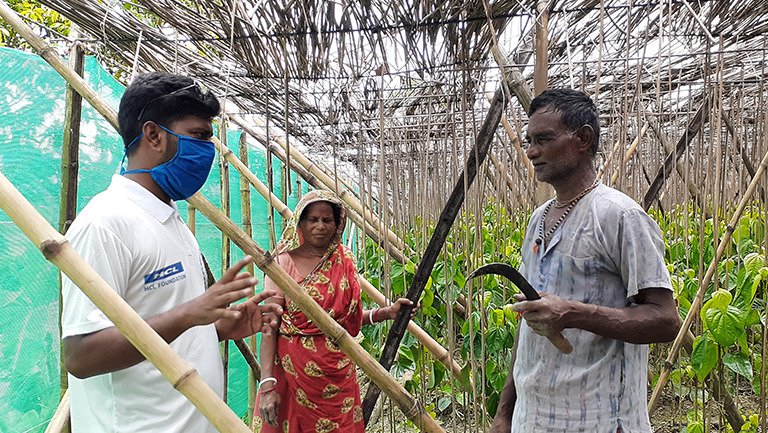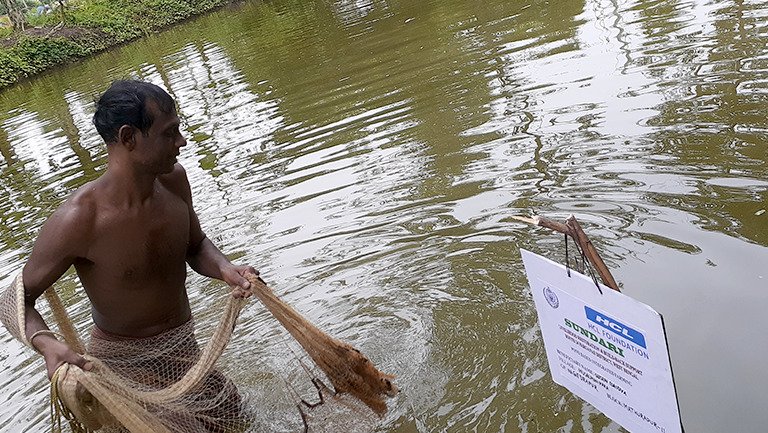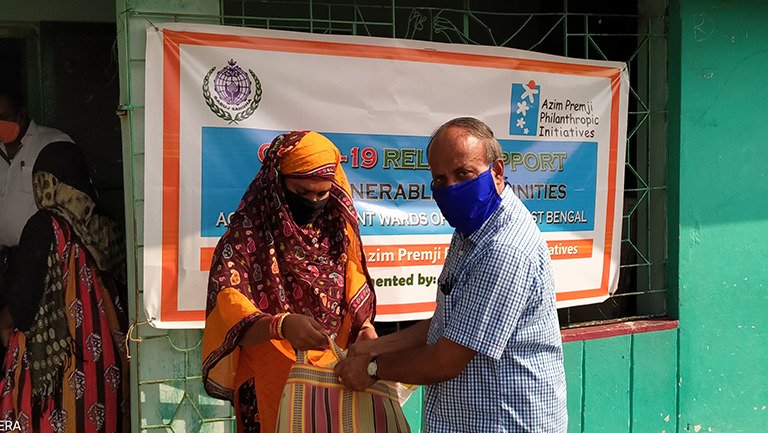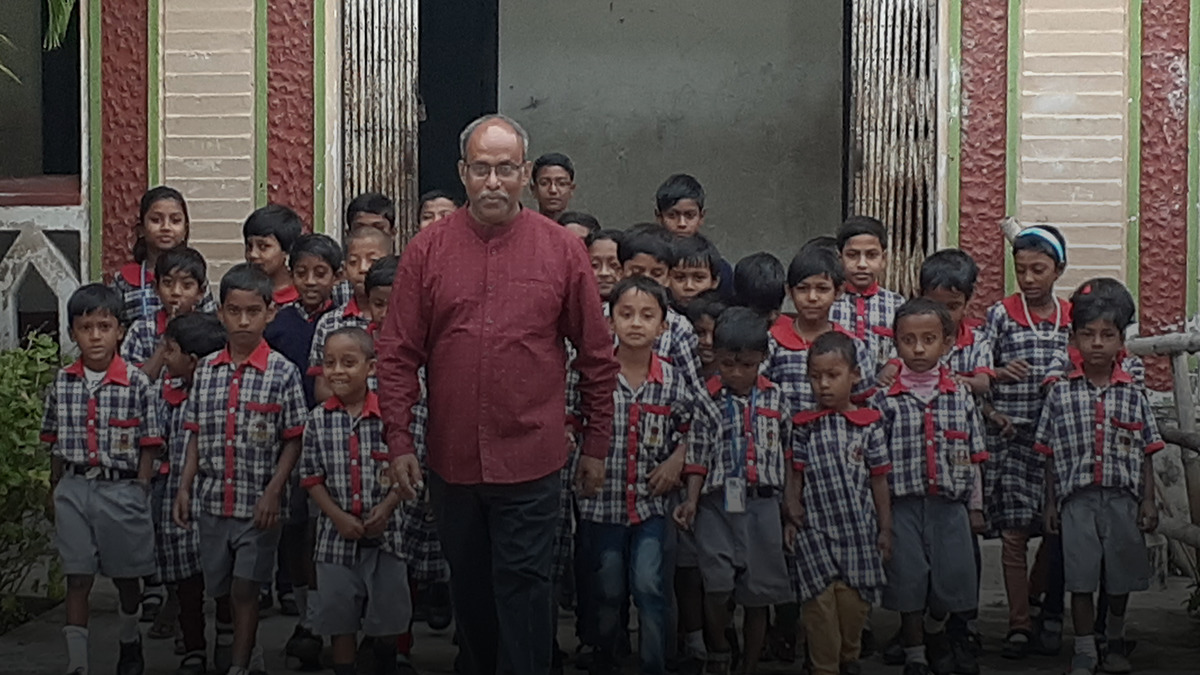THE Sundarbans, located at the mouth of the Ganga and Brahmaputra rivers between India and Bangladesh, are home to the world’s largest mangrove forests and are considered an ecological wonder. But life on islands dotting the delta is tough, with the residents being at the mercy of natural calamities like cyclones and floods at regular intervals.
Sabuj Sangha has been working with local communities in West Bengal for over five decades, bringing a difference in their lives through its interventions in education, health, livelihood, women’s welfare and the environment.
Give speaks with Ansuman Das, director of Sabuj Sangha, about the nonprofit’s work in the area, plans for the organisation and much more.
Give: Around 30 years in the development sector – tell us who/ what incident motivated you to choose this path.
Ansuman Das: I was born and brought up in the Nandakumarpur village of the Sundarbans and I lost my mother when I was only 17 years old because of a lack of medical help. That was the turning point in my life. While I come from a very poor family, I was clear that I would stay here and work for community development rather than migrate to another place to seek better education and work. My ultimate aim was to establish a healthcare facility to ensure that no one dies because of a lack of care.
Sabuj Sangha has been around for more than 47 years in the Sundarbans, working for the most vulnerable sections of society. I joined the organisation at a very young age. As I grew with the Sabuj Sangha, my mission was to transform the organisation and broaden its community development goals. Fighting for equal rights for all and providing them with the opportunities to succeed were our goals.

Since the Sundarbans region is prone to calamities like floods, cyclones and tidal surges, it has been one long struggle for the region’s people. And our NGO has been trying to help people with livelihood, healthcare, education and other needs.
We have five pillars for holistic and sustainable development: These are 1) education, 2) health and nutrition, 3) water sanitation and hygiene, 4) women empowerment and livelihood, and 5) climate justice and environment.
GI: What are some of the challenges that are still prevalent in the area?
AD: Climate change is the biggest challenge facing the Sundarbans. The Sundarbans lie on the delta of the Ganga, Brahmaputra and Meghna rivers on the Bay of Bengal. The region has several tidal waterways and many small islands with mangrove forests all around. It is considered nature’s gift, but the residents of the area and the mangrove forests are facing huge threats. The frequency of natural calamities has increased and migration is very high.
Lack of enough livelihood opportunities, excessive exploitation of natural resources and the fear of calamities are some of the biggest challenges. Despite being not very far from Kolkata, we don’t have good communication links with the outside world. Hence, when we face calamities like floods and cyclones, it takes many days for the relief to reach all the inhabitants.

Health is another issue. Many skilled people are not interested in staying in the Sundarbans. And hence we are not able to get the best of care. But we believe that with more and more community development projects, we can make a difference.
GI: Tell us some of the major changes that Sabuj Sangha has brought over the last few decades for the rural and urban poor?
AD: We have positively affected over 500,000 people in all these years directly or indirectly. And we want to change more lives. We have a strong presence in five districts in West Bengal, and our grassroots network is robust. We don’t launch any programmes without consulting the local community. Their inputs are essential to understand their needs.
We have been running various health, education, sanitation, women’s welfare programmes, and others. The result has been that we have model village concepts that others can follow. We have demonstrated that we can bring down the infant mortality rate, provide education at the primary and secondary levels, improve sanitation facilities, and improve livelihood opportunities.
Because of our excellent work, we are part of the Government of West Bengal’s Sundarban Development Board.
GI: The pandemic’s effect on livelihood would have been devastating on the villagers. How did you help them restore and build back their lives?
AD: Our main task during the pandemic was to identify the most vulnerable and bring them relief. We provided almost 10,000 families with ration kits and other forms of support. Reverse migration was another issue that the Sundarbans faced. We mapped various skills of people who had come back during the pandemic and developed a network to help them get some work.

Since schools were closed, we provided online education for children through digital devices. We also provided psycho-social support for both teachers and students as it was not the most comfortable situation for both sets of people during the pandemic.
Give: You have raised funds for Sabuj Sangha through Give. Tell us about your experience and the potential of crowdfunding for NGOs like yours.
AD: Our experience with Give has been wonderful. For NGOs, avenues to raise funds were limited until a few years back, but if we are doing impactful work, we can go for crowdfunding with the confidence that people will donate for the causes they believe in. GiveIndia has given us that confidence. I still feel that online crowdfunding in India is nascent, and only the sky’s the limit for GiveIndia and nonprofits like ours.
Give: Who is Ansuman Das outside Sabuj Sangha?
AD: I am personally a social entrepreneur. I like to think like an entrepreneur, and I like out-of-the-box solutions.
Give: If you could have a superpower, what would that be?
AD: I believe that every person has some superpower, but not everybody realises it in their lifetime. I would like to have the superpower to identify the true potential of every person I come across and tell them about their talent and how they can uplift themselves through it.
To support Sabuj Sangha, you can donate here.
Interviewed by V Kumara Swamy
–
Give’s mission is to “make giving bigger and better.” Give is the most trusted donation platform in India for fundraisers and crowdfunding campaigns. Through our technology solutions, we enable individuals and organisations to fundraise and donate to a cause, charity or NGO with trust and convenience. Give’s community of 2.7M+ individual donors and 300+ organisations supports 3,000+ verified nonprofits with 80G deduction and serves 15M+ people across India. Find a fundraiser today!
Discover more from
Subscribe to get the latest posts sent to your email.

